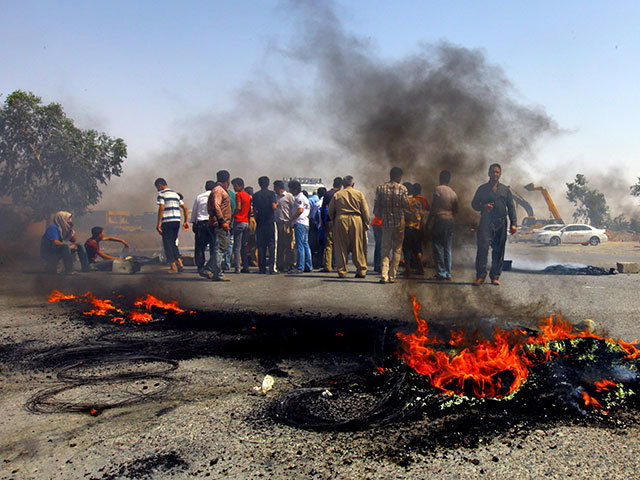
Iraq’s semi-autonomous Kurds plan a referendum for independence and will keep troops in the nearby oil hub of Kirkuk until people there can vote on whether to join the Kurdish enclave, a regional government spokesman said.
“As a people, we have the right to be independent, but the issue is up to the Kurdish people, to be decided upon via a referendum,” said Safeen Dizayee, spokesman of the Kurdistan Regional Government.
“We now have arrived at a new reality. If the Kurdish people, through referendum, were to opt for complete independence, we want it to be done through negotiations with Baghdad, like what happened in Czechoslovakia.”
Iraq’s minority Kurds, who historically have resisted control by Arab-dominated central governments, are charting a course to independently develop oil reserves estimated at 45billion barrels – larger than BP estimate for deposits in the US or Nigeria, Africa’s biggest producer.
Kurdish armed forces moved last month outside their region in northern Iraq and occupied the long-disputed Kirkuk oil fields after the Iraqi army fled from Islamist militants.
Iraq’s central government in Baghdad said any referendum the Kurds may hold, whether to determine the future of the city of Kirkuk and its nearby oilfields or to declare independence for the Kurdish region itself, would be unlawful.
“The government does not accept anything outside the constitutional way, which was voted on by the Kurds,” said Ali al-Moussawi, media adviser to Iraqi Prime Minister Nouri al-Maliki.
“If they do this, it would be unilateral and unconstitutional.”
The KRG and its Peshmerga armed forces will maintain control of Kirkuk and other areas they hold outside the region until people there can vote on joining the Kurdish enclave, Dizayee said, without providing a date for such a referendum. Kirkuk, including Iraq’s fourth-biggest oil deposit, is an ethnically mixed area claimed also by the central government.
“The KRG can export Kirkuk oil, the same way as it exports the region’s crude” from current KRG-administered fields, Dizayee said.
By securing the oil facilities in and around Kirkuk, the Kurds would add almost 9billion barrels to their own crude reserves. Iraq, excluding such an enlarged Kurdish-controlled region, would be left with reserves of 141billion barrels, still the world’s fifth-largest.
The KRG has sold one cargo of crude that it sent by pipeline to the Turkish port of Ceyhan on the Mediterranean Sea, Dizayee said.
“Oil was sold according to the market prices on the day of loading and was definitely not sold at half price,” he said.
The Kurds deposited revenue from the sale at Turkey’s Halkbank, where they plan to send money from any future sales.
Brent crude for August settlement, a global benchmark, rose 0.2% to $112.60 a barrel on the London-based ICE Futures Europe exchange on Tuesday.
KRG authorities plan to boost daily crude-export capacity from about 120,000 barrels currently to 400,000 barrels by the end of the year, with a possibility of “additional quantities from Kirkuk,” Dizayee said.
The KRG will pay money owed to oil companies working in the Kurdish region after meeting its own financial requirements, and it plans to seek loans from international banks to help cover public expenses, he said.
Iraq’s central government only allocated enough money to the KRG this year for the Kurdish authorities to pay civil servants’ salaries for the first two months, Dizayee said.
“We need approximately $1.2billion a month for salaries and other operational and investment projects,” he said.